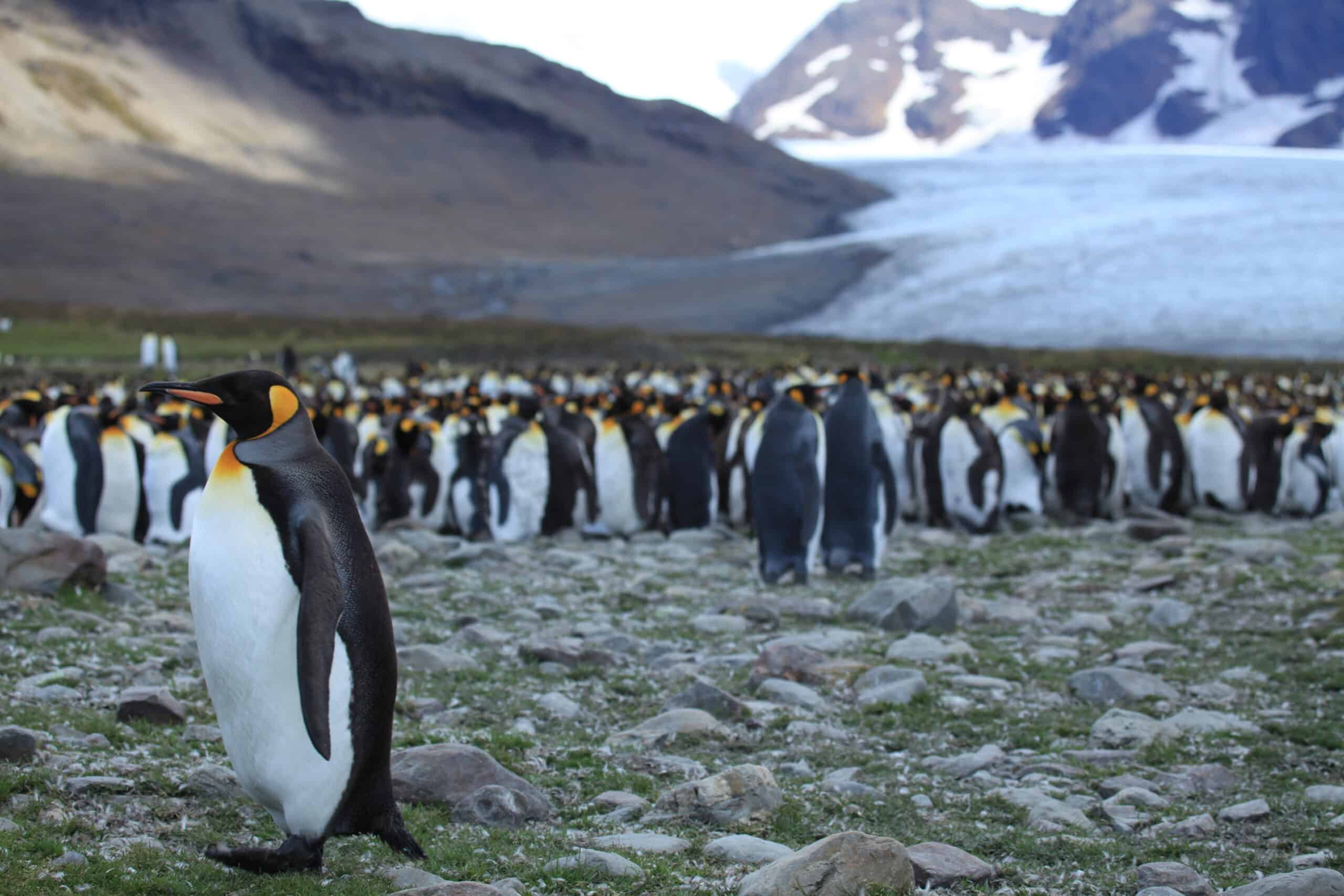Wondering what went right this week in the conservation world? We’ve got you covered with our Conservation Optimism Round-Up! We are collating stories of optimism from around the globe so that you never miss your dose of weekly motivation. (Image of Penguins in South Georgia taken by Liam Quinn from Flickr: https://www.flickr.com/photos/liamq/5817286686/)
1. ‘Watershed’ moment as first legal wild release of beavers in England takes place
” The semi-aquatic animals – which engineer the landscape with dams, ponds and channels that boost other wildlife and help counter flooding and drought – were released into England’s first super national nature reserve at Purbeck, Dorset, on Wednesday.”
“They are nature’s master builders, and we know they can prevent flooding, but we also know that they are really important in creating species-rich habitats as well.” #rewilding #conservationoptimismhttps://t.co/nXrKwvdoOc
— Citizen Zoo (@CitizenZoo) March 14, 2025
2. In Yemen, activists seek to restore rubble-strewn sanctuary for migrating birds
” “Allowing this sanctuary to deteriorate means Aden loses a piece of its natural heritage and a vital economic resource,” says Jamil Al-Qudsi, director of Aden’s Protected Areas and Natural Resources within the Yemeni Ministry of Water and Environment. “
That people who have suffered so much still care about birds is my news to me good news for Mar 11. #EarthOptimism #BeyondTheObituaries https://t.co/LucPvYBAIe
— Dr. Nancy Knowlton (@SeaCitizens) March 11, 2025
3. Caribbean reef sharks rebound in Belize with shark fishers’ help
” Endangered Caribbean reef sharks (Carcharhinus perezi) and other shark species are making a striking recovery in Belize after plummeting due to overfishing between 2009 and 2019, according to recent observations. Experts say the establishment of no-shark-fishing zones around Belize’s three atolls in 2021 is what enabled the population boom. “
Endangered Caribbean reef sharks and other shark species are making a striking recovery in Belize after plummeting due to overfishing between 2009 and 2019, according to recent observations. By Marco Lopez news.mongabay.com/2025/03/cari...
— Mongabay (@mongabay.bsky.social) March 14, 2025 at 2:18 PM
[image or embed]
4. ‘All the birds returned’: How a Chinese project led the way in water and soil conservation
” It was one of China’s most ambitious environmental endeavours ever. The Loess plateau was the most eroded place on Earth until China took action and reversed decades of damage from grazing and farming”
China’s Loess Plateau, once the world’s most eroded land, was revived through massive reforestation & conservation efforts. The project boosted biodiversity, reduced erosion, and transformed local economies. tinyurl.com/59ry5e2b #Reforestation #ClimateAction #Conservation
— activist360 (@activist360.bsky.social) March 15, 2025 at 2:00 AM
[image or embed]
5. The waters once ran red with whale blood – now South Georgia is a conservation success story
” The island also has some of the largest and most significant populations of elephant seals, king penguins and several species of albatross and petrel – the hardiest of ocean-going seabirds.”
The waters once ran red with whale blood - now South Georgia is a conservation success story | Science, Climate & Tech News | Sky News
— David Shiffman, Ph.D. 🦈 (@whysharksmatter.bsky.social) March 15, 2025 at 2:52 PM
[image or embed]
6. In Chile, wetlands spring back to life, bringing with them economic opportunities
” “For me, this is paradise and pure magic,” says Abarca, who runs a small tour company that offers sightseeing trips around the lagoon. “This is the most valuable thing we have. Without it, I don’t know how we’d survive.” “
it is #WorldWetlands day so this is my news to me good news for Feb 2 #OceanOptimism #EarthOptimism https://t.co/LGXzlniFXP
— Dr. Nancy Knowlton (@SeaCitizens) February 3, 2025
7. Scientists identify more than 800 new species in global Ocean Census
” The Ocean Census project has identified 866 new marine species, many from the deep seas, less than two years since its launch. The project announced its findings on March 10, marking the first phase of its goal to document 100,000 new species in the Earth’s oceans. “
The Ocean Census project has identified 866 new marine species, many from the deep seas, less than two years since its launch. The project announced its findings on March 10, marking the first phase of its goal to document 100,000 new species in the Earth’s oceans. news.mongabay.com/short-articl...
— Mongabay (@mongabay.bsky.social) March 11, 2025 at 2:49 PM
[image or embed]
Have a story to share for our weekly round-up? Use #ConservationOptimism on Twitter, Facebook, LinkedIn and Instagram!


